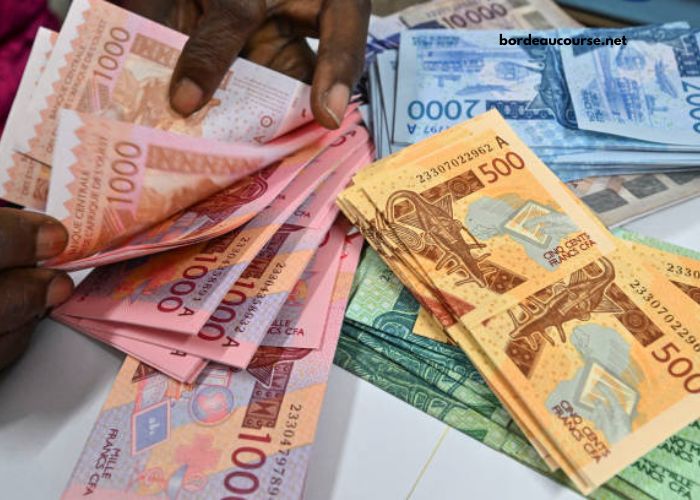The value of 1 Dollar en Cfa is a topic of great importance for anyone dealing with currencies in West Africa. Understanding this conversion rate is crucial for individuals and businesses alike. The CFA franc, used in several countries across West and Central Africa, is tied to the euro and therefore closely linked to global economic trends. This exchange rate plays a significant role in how daily transactions are made, how people save, and how businesses operate in the region.
In this article, we will explore the current exchange rate for 1 Dollar en Cfa, its implications for various economic sectors, and how people can manage currency fluctuations. We will also answer common questions related to the CFA franc and provide insights into the future of currency exchanges in the region.
What Is The Current Exchange Rate For 1 Dollar en Cfa?
The current exchange rate for 1 Dollar en Cfa fluctuates based on global economic conditions and the value of the euro. The CFA franc is pegged to the euro, so any change in the euro’s value against the US dollar directly impacts the CFA franc’s value. This fixed exchange rate system helps stabilize the CFA franc but also makes it vulnerable to global economic shifts. Therefore, the value of 1 Dollar en Cfa can vary depending on the strength of the US dollar and euro, as well as economic policies in the region.
Given this, 1 Dollar en Cfa can range from approximately 600 to 700 CFA francs, though fluctuations may occur. It is essential to check live exchange rates for the most accurate and up-to-date information. For individuals traveling or conducting business in the region, understanding these shifts is crucial for budgeting and financial planning.
How Does The Exchange Rate Impact Daily Transactions?
The exchange rate for 1 Dollar en Cfa significantly affects the daily transactions of individuals and businesses in the region. When the value of the CFA franc is lower against the dollar, goods and services priced in dollars become more expensive. This can lead to inflation in imported goods, which may put a strain on local economies and the purchasing power of individuals. On the other hand, when the CFA franc strengthens against the dollar, imported goods become cheaper, which can benefit consumers and businesses alike.
For those who are sending money across borders, understanding 1 Dollar en Cfa is crucial to manage currency exchange fees and ensure that funds are transferred at the best rate possible. Individuals, especially those in the diaspora sending remittances back home, need to be aware of the fluctuations in the exchange rate to optimize the value of their remittances.
How Can Currency Fluctuations Affect Savings?
Currency fluctuations, especially with 1 Dollar en Cfa, can have a significant impact on savings. When the value of the CFA franc drops relative to the dollar, it reduces the purchasing power of savings. People who have saved in CFA francs may find that their money does not go as far when they convert it into other currencies. This is especially important for individuals who plan to travel abroad, invest in foreign assets, or purchase goods from international markets.
On the other hand, if the value of the CFA franc strengthens against the dollar, savings can increase in value. This may encourage people to hold their savings in CFA francs, as the currency becomes more valuable. However, the potential for volatility in the exchange rate means that individuals should be cautious when saving large amounts in CFA francs and consider diversifying their investments to mitigate the risks associated with currency fluctuations.
Why Do Exchange Rates Fluctuate So Much?
The exchange rate for 1 Dollar en Cfa fluctuates due to several factors, primarily the global economic environment. Economic policies, inflation rates, and changes in international trade all play a role in determining the strength of the CFA franc relative to the US dollar. Additionally, the central banks that manage the CFA franc’s value closely monitor global financial markets and adjust policies to stabilize the currency when necessary.
The economic stability of countries using the CFA franc, as well as their trade relations with other nations, can also influence the exchange rate. For instance, if a country’s exports are doing well and there is a high demand for its goods and services, the value of the CFA franc may rise. Conversely, a country facing economic difficulties or a decline in exports may see the CFA franc weaken against the dollar.
What Are The Implications Of Currency Devaluation On The Economy?
Devaluation of the CFA franc, which impacts 1 Dollar en Cfa, can have both positive and negative effects on the economy. When the CFA franc is devalued, it makes exports cheaper and more competitive on the international market. This can help boost the export sector and improve the balance of trade for countries using the CFA franc.
However, devaluation also leads to higher import costs, which can drive inflation and negatively impact the cost of living. For individuals who rely on imported goods, such as electronics or fuel, a weaker CFA franc means that they will pay more for these items. Additionally, devaluation can erode the value of savings and investments, particularly for those holding assets in CFA francs.
Therefore, while devaluation can stimulate exports, it also brings significant risks for inflation and reduced purchasing power. Individuals, businesses, and governments must carefully manage their financial decisions to navigate these fluctuations.
How Can One Manage The Risks Of Currency Fluctuations?
Managing the risks of currency fluctuations, especially concerning 1 Dollar en Cfa, requires a proactive approach. For businesses, this may involve hedging strategies, such as forward contracts, to lock in exchange rates and minimize the impact of fluctuations. Individuals can manage currency risk by diversifying their savings and investments, holding assets in multiple currencies or seeking out more stable financial instruments.
Another strategy for individuals is to monitor the exchange rate and time currency conversions when the rate is most favorable. This can be especially useful for people who need to exchange large sums of money, whether for business or personal reasons. Additionally, being aware of broader economic trends and how they affect 1 Dollar en Cfa can help individuals make informed decisions about when to buy, sell, or hold currencies.
Conclusion
In conclusion, understanding the exchange rate for 1 Dollar en Cfa is crucial for individuals, businesses, and governments alike. Currency fluctuations impact everything from daily transactions to savings and investments. By staying informed about global economic conditions, monitoring the exchange rate, and implementing strategies to manage currency risk, individuals can better navigate the complexities of currency exchanges in the region.
Whether you’re a business owner, investor, or everyday consumer, the exchange rate of 1 Dollar en Cfa plays a vital role in shaping financial outcomes.



